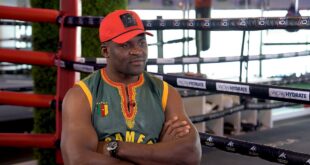Mercedes is opening its own battery recycling plant in southern Germany, in an attempt to recover raw materials such as nickel, cobalt and lithium.
Mercedes-Benz has opened Europe’s first battery recycling plant using an integrated mechanical-hydrometallurgical process.
The factory will be located at Kuppenheim in south Germany and is expected to have a recovery rate of more than 96%, while also being a net carbon-neutral facility. This means that the factory balances the amount of carbon it offsets or absorbs, with the amount of carbon it produces.
The car maker has also made this move in an attempt to cut considerably the amount of primary battery mineral resources that it consumes.
The factory will do everything from shredding battery modules to processing and drying active battery materials. It will also separate, sort and process copper, plastic, iron and aluminium.
The output from the recycling facility is expected to be enough to help produce more than 50,000 new battery modules annually.
Battery metals such as nickel, lithium and cobalt will be recovered and then re-used in batteries for upcoming all-electric vehicles that the company produces.
Ola Källenius, the chief executive officer (CEO) said in a statement: “Mercedes-Benz has set itself the goal of building the most desirable cars in a sustainable way. As a pioneer in automotive engineering, Europe’s first integrated mechanical-hydrometallurgical battery recycling factory marks a key milestone towards enhancing raw-materials sustainability.
“Together with our partners from industry and science, we are sending a strong signal of innovative strength for sustainable electric mobility and value creation in Germany and Europe.”
In a statement, the German chancellor Olaf Scholz said: “The future of the automobile is electric, and batteries are an essential component of this. To produce batteries in a resource-conserving and sustainable way, recycling is also key.
“The circular economy is a growth engine and, at the same time, an essential building block for achieving our climate targets! I congratulate Mercedes-Benz for its courage and foresight shown by this investment in Kuppenheim. Germany remains a cutting-edge market for new and innovative technologies.”
Mercedes-Benz CEO pushes for delay in EU tariff on Chinese electric vehicles
Källenius recently called on the EU to delay its planned tariff on the import of Chinese electric vehicles (EVs) into the bloc, citing the need for free trade, instead of more trade barriers. He warned that tariffs would harm the EU’s competitiveness on a global stage, and in turn, damage its long-term economic prospects.
Instead, a mutually-beneficial solution, which would require the EU to continue discussions with China and renew de-escalation attempts, might work better in the bloc’s favour, according to Källenius.
The EU has recently proposed higher tariffs on electric vehicles being imported from China, amid increased allegations of Chinese EV manufacturers being subsidised by the government. This, in turn, is allowing them to sell their cars at lower prices in the EU, which is undercutting European car manufacturers.
Other German car makers, as well as the German government have also spoken out against the tariffs, highlighting concerns about a more serious trade war. This is especially as China has also hit back at the EU already, in response, with investigations into brandy, pork and dairy product imports from the EU.
 topnaijanews Stay informed with the latest Nigerian news at your fingertips
topnaijanews Stay informed with the latest Nigerian news at your fingertips
